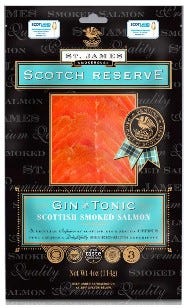
I once met a guy who wrote his PhD thesis about whether popularity and value are the same thing in art. To me, the answer seemed obvious: No fucking way. If popularity equals value, then the greatest work of art of all time might Avatar, a movie that I watched on an airplane and ditched halfway through because it was less interesting than the little map of the flight plan. If popularity equals value, then The Eagles are better than Led Zeppelin, because they’ve sold more records. And to me, the idea that the five limp chodes who warbled their way through “Take it to the Limit” are better than these guys is the definition of a flat Earth belief.
But the more I thought about what “value” actually means, the harder it became to argue against the “popularity equals value” theory. I realized that I don’t actually know what value means, and worse yet: I realized that the definition matters. Our conceptions of value affect our decisions about public policy, art, and even what we do with our lives.
To give away the ending: I still don’t really know what “value” means. But thinking about it helped me become about 15% less confused. So, hopefully this article will be valuable to you, whatever that means.
On an individual level, value is simple. We all say things like “that movie was good” or “that meal was bad” or “George Clooney’s The Midnight Sky was an 18-wheeler full of hippopotamus shit.” It’s clear what we mean: “I thought __________ had value/didn’t have value.” It’s an opinion — an individual assessment of value — and it’s not confusing. We all get to decide how much we value any particular thing. If you think that a Beanie Baby is worth a thousand dollars, then it absolutely is…to you. And I’m free to think that you’re nuts, because it’s a limited edition platypus Beanie Baby from 1993 with the tag still on and I’m not letting it go for less than $9,200.
But is there such a thing as intrinsic value? That is: Can value be measured in any objective way? This is an important question if you’re trying to figure out which things in life are worth your time. How do you know what’s important? What’s worth pursuing? You don’t want to piss away your life pursuing something frivolous, like that notoriously chaser of shallow hedonism: The Trix Rabbit.
If you could quantify all the value that people attach to something over the entire course of human history — past, present, and future — then that might be a pretty good definition of “intrinsic value”. Seems pretty simple: Individual assessments of value are valid, so if you add them all together, that’s the total value of a thing. Mystery solved, right? Value = aggregate demand over all of human history. In my opinion, this almost works. Except for the important ways in which it doesn’t.
The first problem is that it’s weird not to include any moral dimension in the concept of value. After all: Some people like dogfighting. They’ll pay to see it, it absolutely has market value — are we comfortable saying that it therefore also has intrinsic value? People will pay for snuff porn and child brides and torture devices and even Eagles albums — human beings are twisted fucks who value all sorts of depraved things. If we accept those preferences without question, then we risk creating a definition of intrinsic value that’s as perverted as the sick bastards who shell out money for gin & tonic flavored salmon.
A partial fix for this problem is to note that my definition of intrinsic value measures aggregate demand, which allows for the concept of negative value. So: Some people value dogfighting, but some people negatively value it — that is, they would pay to stop it — so maybe the aggregate demand for dogfighting is negative. Hot take: As I think it should be. This fix makes things considerable less insane.
But I still don’t think it solves the problem; I don’t think we can say “intrinsic value has no moral component and that’s fine”. Because that assumes that whatever humans value over the course of human history is good. Why would that be true? We are — as I noted earlier — a sick bunch of fucks. If I had to guess, I would bet that the aggregate demand for slaves throughout human history up to this point is positive. So, to say “whatever humans want is good” seems Panglossian; it seems like far too charitable of an assumption to grant to a species that both invented nuclear weapons and is now too daft to use the technology to save ourselves from climate change.
My solution to this problem is to add a squishy, hippie-dippie qualifier that I find deeply unsatisfying. Here it is: Value = aggregate demand over all of human history for things that contribute to human flourishing. Trust me: I hated typing that. My qualifier is a fuzzy, sugary, I’d-like-to-teach-the-world-to-sing bit of ambiguous tripe. Because what the fuck is flourishing? I picture a jolly person in a verdant field eating figs and pomegranates from a cornucopia — basically the Ghost of Christmas Present, except outside. But “flourishing” could mean anything. It could mean storming across Asia in a campaign of murderous conquest — that’s what “flourishing” meant to Genghis Khan. It’s a qualifier that perhaps introduces more questions than answers, but I’m trying to get at the idea that intrinsic value only makes sense if it’s something that’s good for us.
The good thing about this mostly-terrible qualifier is that it at least points us towards a goal: Human flourishing, whatever that is. And I think that it gets us most of the way to solving the Eagles/Led Zeppelin problem.
That’s true first because it means we should consider intensity of enjoyment. A lot of people bought Eagles albums — how many people still listen to them now? My dad owned several Eagles albums that sat in a dusty cabinet for my entire childhood; I listened to them exactly once and decided that they weren’t even as good as my mom’s Carole King records or my sister’s copy of the Annie soundtrack. But my dad — in perhaps the only cool act of his life — also owned Led Zeppelin’s “Houses of the Holy”, and I played that non-stop. Led Zeppelin already has more streams on Spotify than the Eagles; I’d bet that Zeppelin will end up producing more value than the Eagles because their work will stand the test of time.
Value should also consider how much something contributes to future valuable things. For all the smoke I’ve been blowing up Led Zeppelin’s ass, there wouldn’t be a Led Zeppelin without Muddy Waters. In fact, most American music is descended from the jazz/blues that was popular in and around New Orleans at the turn of the century, so those artists might have produced more value than any musician who’s popular now. That’s probably true even though most of them never got rich, few of them are remembered, and the handful who made records have their work unfairly torn apart by some petulant twerp (me) on my podcast. But those artists laid the foundation for basically everything that exists now.
Many contributions aren’t quantifiable. Did Aryabhata monetize the concept of zero? I doubt that he did, unless he also invented the concept of merch. Knowledge contributes enormously to human flourishing, but it only makes you rich if Oprah interviews you or if you’re really, really good at writing grant proposals. It’s possible to make gigantic contributions to human knowledge, live a humble life, die, and only after you’re dead for a few decades have people say: “Hang on, this guy discovered modern genetics.”
The main thing that I take from all this is that popularity isn’t the same as intrinsic value. Market value — a close cousin of popularity — isn’t it, either, because it’s just the interaction of supply and demand for a discrete end-product in a specific market during a specific timeframe. That’s not “value” in the sense that I’m looking for. Avatar made 93 times as much money as A Serious Man, but if the thought process I’ve described is anywhere close to correct, then you can make a case that the latter is the more valuable film.
All of this also makes me glad that I didn’t go into finance. It has occurred to me once or twice that I should aspire to not be a complete piece of shit, and I’ve also considered that the best way to do that might be to make a ton of money and then give most of it away. Some people do that, and I don’t think that they’re nuts. But it’s not what I’m going to do, because 1) That strategy gives too much weight to market value, and 2) I give it a month before I throw myself out a window because finance seems like a miserable fucking existence.
There are forms of value other than market value. For me, the value I can provide starts with raising my son, who has a chance to be even less of a piece of shit than I am — we may be only generations away from a Maurer fit to live in society! I can also try to simply “make good stuff”, whatever that means. I am very aware that many, many people who say “fuck money — I’m just going to make important art” end up making absolute garbage with no value whatsoever. For all the shit that I give George Clooney’s The Midnight Sky — and I feel that I give it the maximum amount of shit possible — it was clearly an attempt to make something good. It 100 percent did not work (in my opinion), but it was an attempt, and all joking aside: I respect that.
That’s my thinking on the subject. Did it provide any value to you? Possibly not: I may have just written the Midnight Sky of Substack columns. You may have a conception of value based on the Dow Jones, the ancient Mayan calendar, or the prices in cursed gift shop, and I can’t really say any of those are wrong. But the thought process I described gives me a small amount of clarity about what matters and what I should be doing. Hopefully, you’ll consider it to be something slightly more than completely worthless.








Not said in so many words, but what’s lurking in this piece is the idea that “value” is often not measurable in dollars (or any currency). “Value” is often not an economic concept. Even economists (the good ones) recognize that not all value, and not all “rational choices,” are based on economics.
Great stuff...I too am about 15% closer to a true understanding of "Value", but that's not why I am weighing in...
The Eagles are outstanding, but God help me you are spot on, Led Zeppelin is (by far) the best band that has ever walked the Earth. Not a single bad song in their entire catalog. Thanks for the "link" to the 1969 Live Video's, now the rest of my day is shot - can't pull my eyes away.